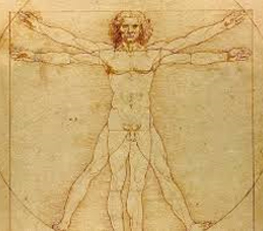(25-06-2018) A closer look at how obesity makes it easier for cancer cells to grow
(Natural News) If you want tolower your cancer risk, consider losing some weight.
It’s a known fact that obesity is the second most common preventable cause of cancer and it’s also a great threat to our health. However, not much is known about how whole-body metabolism is linked to tumor formation. Experts are still trying to learn more about the molecular mechanisms that allow fat cells to communicate with tumor tissue.
To answer this question, scientists from the Sanford Prebys Medical Discovery Institute(SBP) conducted a study and their research revealed that the inactivation of p62, a protein in fat cells, sustains aggressive and metastatic prostate cancer in mice.
The study findings determined that a p62 deficiency prompts a shutdown of processes that consume energy in fat tissue, which can increase the availability of nutrients for cancer cells.
Dr. Maria Diaz-Meco, co-senior study author and a professor in theCancer Metabolism and Signaling Networks Programat SBP, said that their findings can be used to develop better therapies that identify cancer “not just as a genetic or cellular disease, but as a whole-body process where tumors communicate with metabolic organs to maintain their unlimited appetite for nutrients.†She added that the vulnerability could soon be treated therapeutically.
Prostate cancer and obesity
In the U.S., prostate cancer is the second major cause of cancer death among men and obesity is a major risk factor for the progression and aggressiveness of this type of cancer. (Related: When weighing all the factors, experts say leading a healthy lifestyle is your best bet against cancer.)
In earlier studies, the underlying molecular mechanisms were uncertain partly because of the limitations of mouse models of obesity. These models didn’t let scientists analyze the specific “crosstalk†between fat cells and tumor tissue without having to rely on dietary factors.
Dr. Jorge Moscat, co-senior study author and director and professor of theCancer Metabolism and Signaling Networks Programat SBP, explained that the majority of the studies that looked into the role of adiposity and obesity in cancer observed mice on a high-fat diet.
He noted that while this simulates some of the situations in patients, it’s not enough to let them fully understand the signaling pathways that “control the bidirectional communication between tumors and adipocytes, or fat cells.†Dr. Moscat shared that this is necessary so researchers can isolate therapeutic targets that can be used to counter the pro-tumorigenic signals that come from the adipose tissue.
Dr. Diaz-Meco and Dr. Moscat used a mouse model of obesity that they previously helped develop to address this matter. The mice in this model lack p62 in fat cells, which allowed for increased adiposity and metabolic problems without the need to change their food intake.
For the new study, the researchers discovered the crucial role of p62 in fat tissue-tumor communication that “supports cancer metabolic fitness.†The results of the study showed that p62 deficiency in fat cells triggers the progression and metastasis of prostate cancer in mice through the restriction of mTORC1, a protein complex.
The tumors suppress activities that consume energy like fat cell development, fatty acid metabolism in white fat tissue, and oxidative phosphorylation (a metabolic process). Because of this, tumor growth is supported by more fatty acids and other nutrients.
Other experiments found that p62 deficiency in fat tissue supports the production of osteopontin and Cpt1a, proteins that are necessary for “prostate cancer proliferation, migration, and invasion.†These clinically relevant findings can help researchers since high levels of osteopontin and Cpt1a are linked to “aggressive, metastatic castration-resistant prostate cancer in humans.â€
Dr. Diaz-Meco advised that aside from “better-known genetics,†other aspects of cancer therapeutics must also be considered. Investing in research concerning cancer metabolism can help identify the metabolic vulnerabilities that are common among all types of cancers. She concluded that research like this could help experts develop more effective therapies that are less susceptible to resistance, which is a common concern with “oncogene-target approaches.â€
Other cancer-prevention tips
Aside from maintaining a healthy weight, here are othertips that can help lower your cancer risk:
Eat raw fruits and vegetables, which usually have the highest amounts of vitamins and minerals.
Use spices to enhance the flavors of various dishes. Spices like curry powder, garlic, and ginger have cancer-fighting nutrients. Other nutritious spices include basil, coriander, rosemary, and turmeric.
When cooking vegetables,steam them until tenderto preserve more of the vitamins. When boiling vegetables, use the cooking water to make a soup or another dish, so none of the vitamins goes to waste.
You can read more articles about natural ways to lose weight and how to lower cancer risk atCancer.news.
Sources include:
ScienceDaily.com
HelpGuide.org
News
In evidenza
 "L'informazione presente nel sito serve a migliorare, e non a sostituire, il rapporto medico-paziente."
"L'informazione presente nel sito serve a migliorare, e non a sostituire, il rapporto medico-paziente."
Per coloro che hanno problemi di salute si consiglia di consultare sempre il proprio medico curante.

Informazioni utili
-
Ricette a zona
-
Tabelle nutrizionali
-
Tabella composizione corporea
-
ABC della nutrizione






